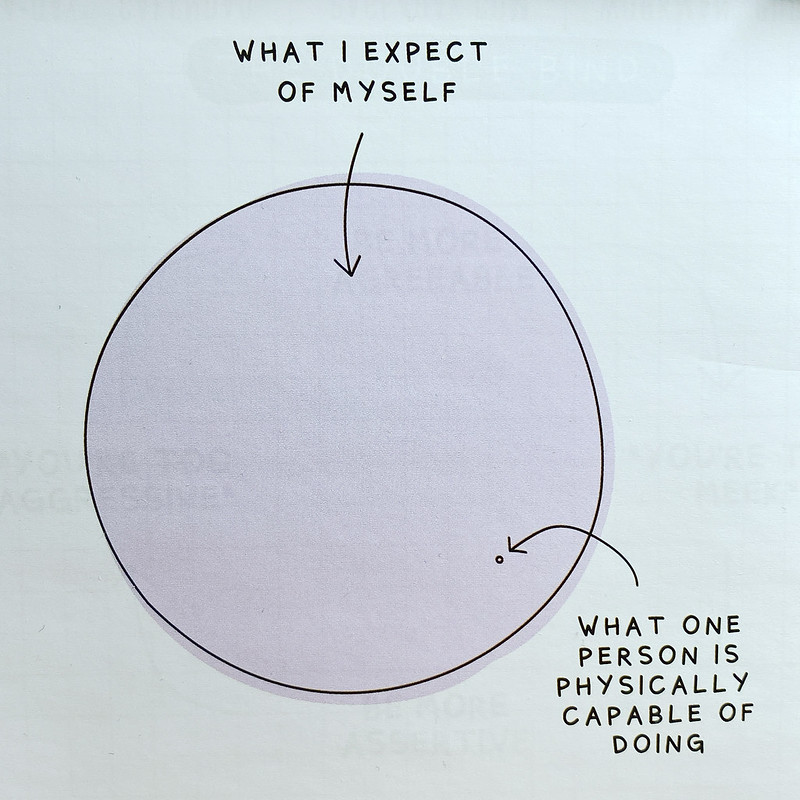
I don’t think we change per se, as much as we just learn to accept who we’ve always been, you know?
Trent Crimm, Ted Lasso

Braveheart, this has been my year to transition into the daily details of my “retirement” — a term I have yet to define fully, other than it includes self-compassion and resigning from any sense of duty or obligation to (paid and unpaid) work related to “shoulds”).
In the finale of the third season of Ted Lasso, Roy asks if people can change during his inaugural meeting as a Diamond Dog. This became a question I have been processing (via doodles and hand-written entries) in my private journal regarding “change” and my retirement (along with some other situations). ♥
- I don’t believe we actually change.
- I believe we become more of who we have always been.
- I believe that there are points of decision and choice that determine whether we will identify and refine — or ignore and deny — default habits and actions that continually fracture our well-being and relationships.

Being away from home during the month of May (and having days of driving to arrive at my destination and back home again) provided an ideal opportunity to reflect and identify the details of what matters most to me.
- The “what” including Life Quad choices for my wellness and creative work (and how that pertains to the dailies of my “retirement”).
- The “what” also including the “who,” the relationships that matter most to me.
- Relationships woven together by mutual choices for love and commitment.
- Relationships that have strengthened over time within honest conversations and common interests.
We either acknowledge, learn from and correct our faulty beliefs to heal from our brokenness and trauma — or we isolate ourselves in a space of shame and blame.

Naming our part (choices, actions and inaction) in the details and evolution of our living and learning, brokenness and trauma — forgiving others, whenever necessary — leads to self-acceptance, healing and closure.
- Noting, of course, that forgiveness does not ensure reconciliation.
- Because, (paraphrasing Maya Angelou) when people show you who they are, it is essential [wise, empowering, healing, life-giving] to believe them.
- Forgiveness may lead to reconciliation when the people involved share a bond of trust.
- If trust has been destroyed forgiveness is merely the preamble to termination.
Forgiveness is not denying your pain, it is deciding not to allow the actions of another person to trap you in the past.
- Parting ways may also become necessary when self-acceptance and forgiveness merge.
- As in, realizing what we need and desire, and then acknowledging a personal or professional commitment for what it is — and letting go of what isn’t.
- Recognizing it is time to resign or conclude a commitment.
- Seeing people and situations as they are — not as they used to be or how we “romanticize” (wish for) them to be.
- Let’s live in truth instead of expectation and baseless hope, Braveheart. ♥
- As in, realizing what we need and desire, and then acknowledging a personal or professional commitment for what it is — and letting go of what isn’t.
I think people can change. They can. Sometimes for the worse, sometimes for the better.
Nate, Ted Lasso
Change is part of living, and requires that we let go of perfectionism, because it is “the voice of the oppressor, the enemy of the people. It will keep you cramped and insane your whole life” (Anne Lamott).
- Within our choices for change, there will be miss-takes and we may often will look back and wonder if we made the best choice.
- Change can be messy and disconcerting; it can include marathon entanglements with if-only’s and what-if’s.
- Questions and doubt are simply part of the progression of change.
- “We need to make messes in order to find out who we are and why we are here” (Anne Lamott).
Human beings are never going to be perfect, Roy. The best we can do is keep asking for help and accepting it when you can. And if you keep on doing that, you’ll always be moving towards better.
Higgins, Ted Lasso
My changes (as I “retire”) have included right brain planning amidst time away from home and my regular routines; asking for help and accepting it whenever I could. And of course, acclimating myself to what I want more of … ♥
- The most significant changes will involve refining my willingness to prioritize my well-being.
- This begins with self-compassion and fostering relationships, and it will include the evolution of my creative work.
Thank you, dear Braveheart, for your presence and support. ♥

